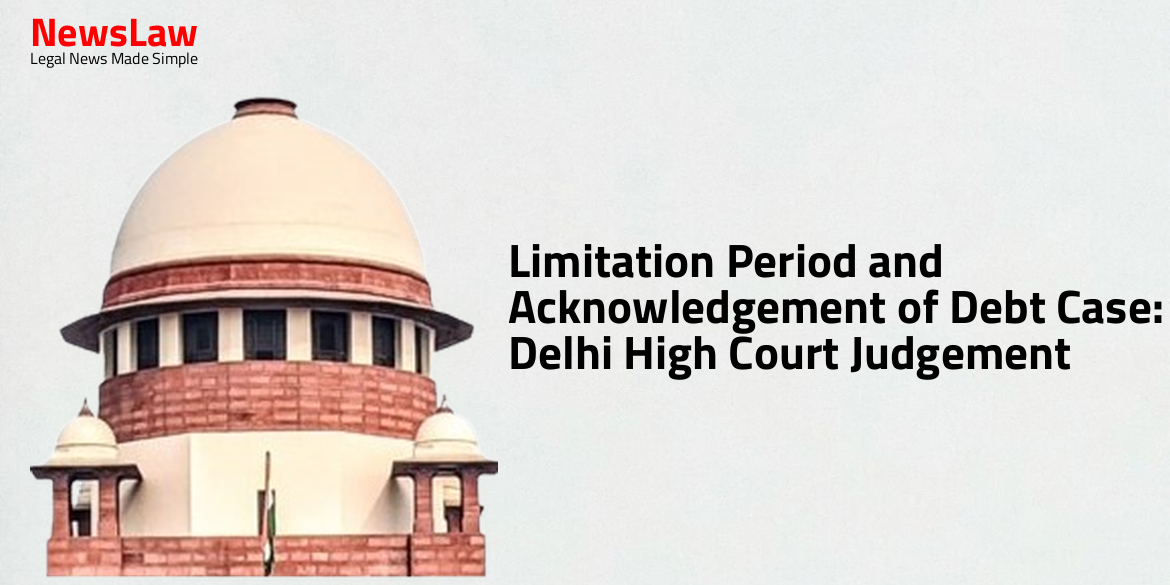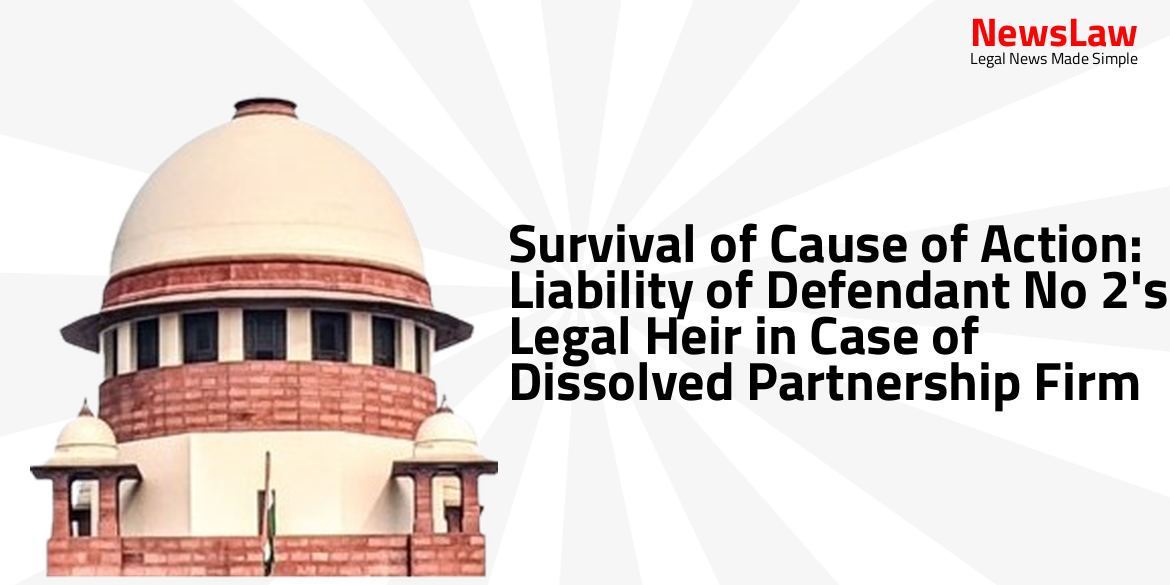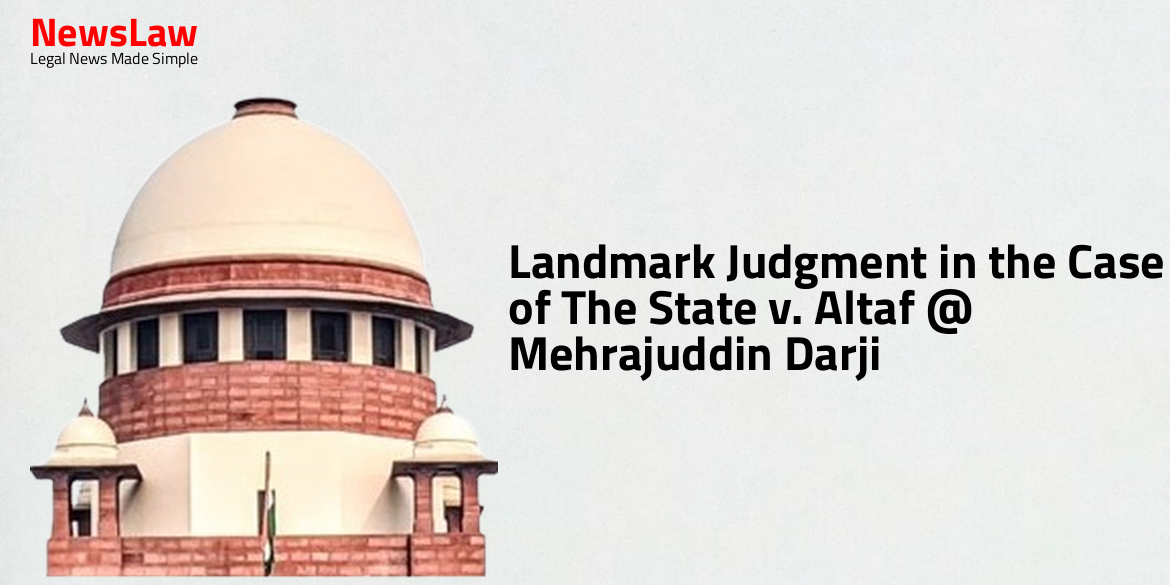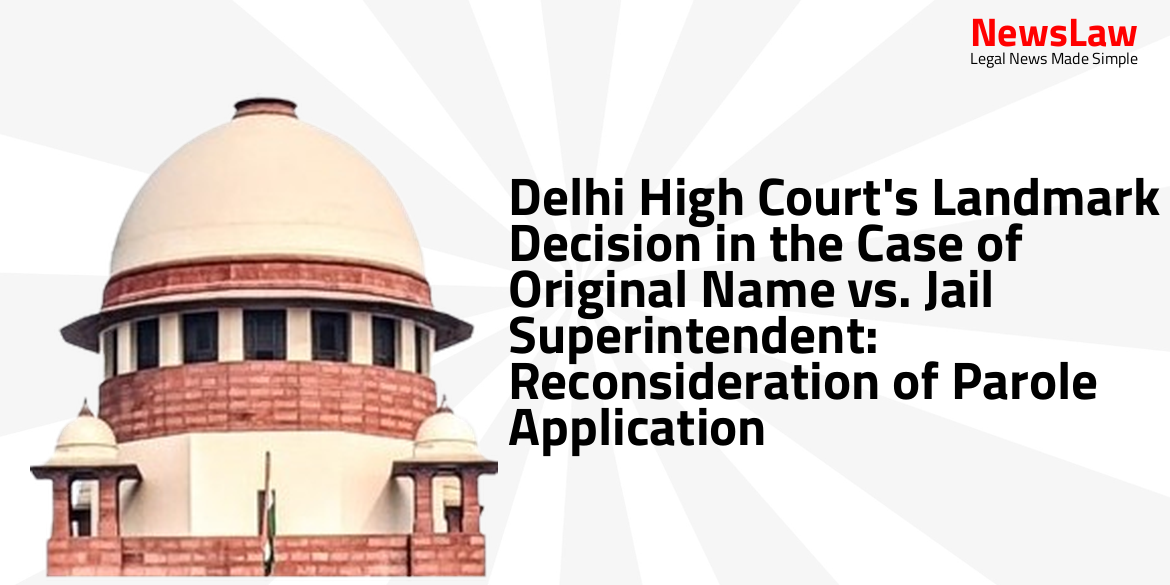In a recent case before the Delhi High Court focusing on the limitation period and acknowledgement of debt, a crucial decision was made. The case involved a dispute between parties over payments and liabilities. The Court addressed the issue of the limitation period and the impact of payments made towards outstanding debts. Find out more about this significant legal ruling and its implications in the realm of debt acknowledgements.
Facts
- The Trial Court determined the period of limitation in the case.
- The last payment was received by the plaintiff on 12.03.2015.
- Legal notice demanding the amount was issued on 16.01.2018.
- The suit was filed on 03.04.2018, within three years from the date of legal notice.
- The suit was filed well within the limitation period.
- Territorial jurisdiction was established based on the Memorandum of Association (MoA) and the registered office of the plaintiff.
Arguments
- The petitioner alleged that the respondent supplied defective and sub-standard quality goods after January 31, 2014, leading to no further dealings.
- The petitioner claimed that the limitation period for filing the suit started on March 2, 2014, and ended on March 1, 2017, making the suit filed on April 3, 2018, time-barred.
- Cases of Micrographics India v. The Govt. of NCT of Delhi and Rakman Industries Limited v. Sumaja Electro Infra Private Limited were cited to support the time-barred argument.
- The respondent received the last part payment of Rs. 25,000 from the petitioner on March 12, 2015, after which no further payments were made.
- The respondent’s counsel presented a ledger account from April 1, 2015, to March 31, 2016, showing dishonored cheques issued by the petitioner.
- In the case of Hindustan Apparel Industries v. Fair Deal Corporation, it was held that payment by cheque, even if dishonoured, amounts to an acknowledgement of debt and liability.
Analysis
- The present revision petition lacks merit.
- The limitation period did not start running from the due date of 02.03.2014 as claimed by the petitioner.
- A payment of Rs. 25,000/- was made by the petitioner on 12.03.2015 towards the running account between the parties.
- The payment made through dishonoured cheques can be considered an acknowledgment of debt and liability.
- The period of limitation stands extended by virtue of Section 18 of the Limitation Act, 1963.
- Case of Snam Abbrasives Pvt. Ltd. involved evidence appreciation and lack of placing evidence on record by defendant.
- Doctrine of implied acknowledgement and exception in statute of limitation for actions on accounts between merchants were abolished in England.
- Sending repeated demand notices cannot extend the limitation to file a suit indefinitely.
- In India, Section 8 of the Limitation Act 1859 incorporated Catling’s case principle for suits between merchants and traders regarding balances of accounts.
- Article 1 of the Schedule to the Limitation Act, 1963 corresponds to Section 8 of the Limitation Act, 1859 regarding mutual, open, and current accounts.
- Case laws cited by the defendant’s counsel are not applicable to the current circumstances of the case.
- In Micrographics India case, the suit was filed beyond the three-year limitation period based on goods and services provided between 1995 to 1997 and a letter challenging the plaintiff’s claim in 1999.
- The suit was instituted beyond the period of three years
- The suit was held to be barred by limitation
- Rigors of Article 113 of the Limitation Act, 1963 were applied
- Emphasis was placed on adhering to the specified time limits for legal actions
Decision
- None of the situations mentioned in the present matter were decided upon.
- The present revision petition and pending application have been disposed of.
- The present revision petition has been dismissed with a cost of Rs. 25,000/- to be deposited with the Delhi High Legal Services Committee.
- No opinion on the merits of the case has been expressed in this decision.
Case Title: M/S VOIR INDIA ELECTRONICS PVT LTD THROUGH ITS DIRECTOR Vs. M/S POLYBLENDS INDIA PVT LTD THROUGH ITS DIRECTOR (2024:DHC:4098)
Case Number: C.R.P.-69/2022



